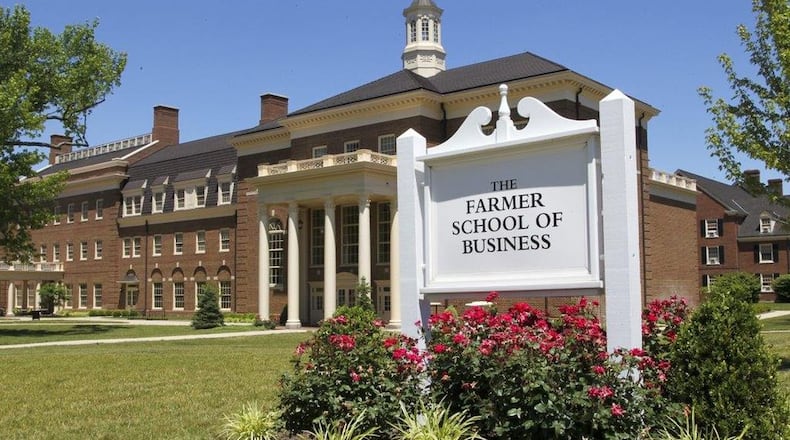For that and other reasons, students from the business school’s finance classes chose recently to invest $25,000 of the school’s Social Impact Fund $250,000 in the Blue Ocean Solids company located the northern Hamilton County community of Loveland.
The company makes a variety of chemical products to treat corrosion, scale, microbes, and fouling in boilers, cooling towers, and closed-loop water systems. Removing these problems leads to better system efficiencies and lower energy costs, Miami officials noted in a released statement.
“The original funds for the Social Impact Fund came from a gift from alumnus Art Collins,” said Jay Murdock, marketing coordinator for Miami’s widely acclaimed Farmer School of Business.
“Established at Miami University in 2018 and led by the John W. Altman Institute for Entrepreneurship’s Center for Social Entrepreneurship, the Social Impact Fund is one of only (a few) undergraduate-led funds of its kind in the nation.”
“The fund provides early-stage funding needed for startups identified by a team of students. By participating, students become equipped with high-level skills and real-world learning in social impact investing and create a portfolio of impact investments for Miami University,” said Murdock.
Altman Institute director Tim Holcomb said he is “excited to see the Altman Institute’s $250,000 student-led Social Impact Fund add Blue Ocean Solids to its portfolio.”
“The company’s solid-based chemistry is less toxic, safer to handle, more efficient to ship, and has a significantly smaller carbon footprint than the toxic liquid-based formula, all of which has the potential to help keep the planet safe for future generations,” said Holcomb.
Those companies operated by Miami alumni or having other affiliations with the university have a preference status among participating students and their decisions, said school officials.
All profits derived by investments remain in the school’s Social Impact Fund to be used by future business school students and their management of the portfolio.
In a statement released by this year’s students, they said: “Our goal as a fund is to invest in early-stage social enterprises with a preference towards Miami-affiliated founders of start-ups generating both a financial and social return in Ohio.”
“All of our investments contribute to social enterprises tackling problems like education, urban revitalization, and public health.”
About the Author

